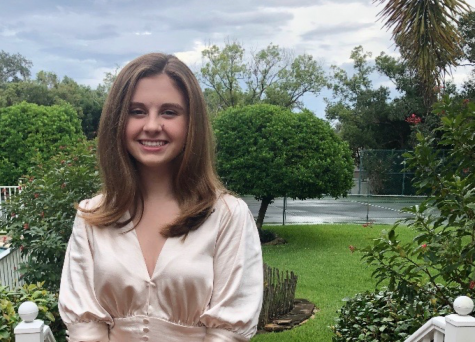Andre Partykevich Interview
November 11, 2020
Q: What are the first words that come to mind when you think of Ms. Frank?
A: I would say, and these aren’t necessarily in any order, but she had a deep concern for her students and not just the subject matter. That was almost secondary. But what came first is her compassion for her students, and her kindness [towards] her students. The students feel very comfortable with her and by extent, to faculty members to friends who knew her. And so if you also had compassion for students and what they were going through with the added obligations of school work, then you immediately had a connection with Ms. Frank, and she wasn’t a boisterous person. She certainly didn’t like to draw attention to herself. And I think that was one of her qualities that she kind of stood in the background. But kids always knew that they could go to her and talk to her. That’s what I always remember, her kindness and compassion.
Q: What is your favorite memory of Ms. Frank?
A: Okay, so we would sometimes go to Starbucks after lunch, especially on days that were like teacher work days or something like that and usually she drove, but once I drove, and she didn’t like the way I drove. So we went up to Starbucks and she was like “You’re never driving again!” So we always drove her car after that. [That] was one of the rare moments when she got, not angry, but like she wanted her away.
She also had a great love for dogs. She had [different] dogs, specifically Whippets and retired Greyhounds, and so she was very dedicated to her dogs, and they provided an outlet for her certainly. I always think, since I’m a dog person, that people who like dogs have a special place in my heart. So we don’t have a dog, but I always tell my husband the day after I retire we’re getting a dog. So it’s always something that I kind of shared with her, our love for dogs.
Q: How do you feel she impacted your life?
A: She wasn’t quick to judge… Particularly her students. She had much more judgment for adults, like we should know better. I think that’s something that I try to remember all the time: that just what I see on the face of the students isn’t necessarily the truth or, not that they’re lying, but that they’re just not showing everything. She had a great ability to read that. I’m a little not as easy to read, but just to take a moment, I think she would say […] just give it a moment, you know, let the student reveal themselves if they trust you. I tend to judge quickly, which is a bad quality of mine and like I said, she didn’t do that and I think that’s something that I learned from her to do more of. To just take a deep breath and wait a bit.
So I also think, going back to the first [question], the dignity with which she learned about her illness and worked through her chemotherapy and things up into the end. It was a very quick process from when she learned about her illness to her passing, exceptionally quick, but it was important to her to make sure she finished the semester and, you know, did all the things that faculty have to do at the end of the school year, [which were] made more difficult because of Zooming. So the fact that she wasn’t with her students physically, I think, caused her a lot of grief which she didn’t need in that time period, but you know, even though she was in a lot of pain and of course wanted to sort out some matters before she died. I think her first thought was always about her first students.
Q: What was your favorite story Ms. Frank told you about her life?
I think another thing we had in common was that she was actually trained as a medievalist, as a historian. So we talked a lot about history; what students should know about history. Frequently, we talked about what we were teaching in world history and she had definite views on what we should be teaching and shouldn’t be teaching, and you know, I teach the cultural history class and I’m always grateful for students who had her because they know a lot of the Greek and Roman gods and the literature from that time period. So whenever we’re covering that time period, I would love the fact that somebody speaks up who takes Latin and says, “Oh I know that story,” which last year, was Colton Ray. There’s always somebody. . . who took latin who knows that stuff. So, she taught them well and always had great AP scores and the fact that students stuck with Latin knowing that they’d have her for several years, I think is a real testament to her ability to reach students and be a good teacher.
Q: Do you have any last comments that you want to make?
A: I just have glimpses of her everyday. I just have glimpses. It’s kind of helped that we don’t have convo in a weird way because I don’t immediately stop there for a quick hello after convo, but I have glimpses of her on campus every day. I mean, not really, I’m not hallucinating but I just think of her. She touched my life.


